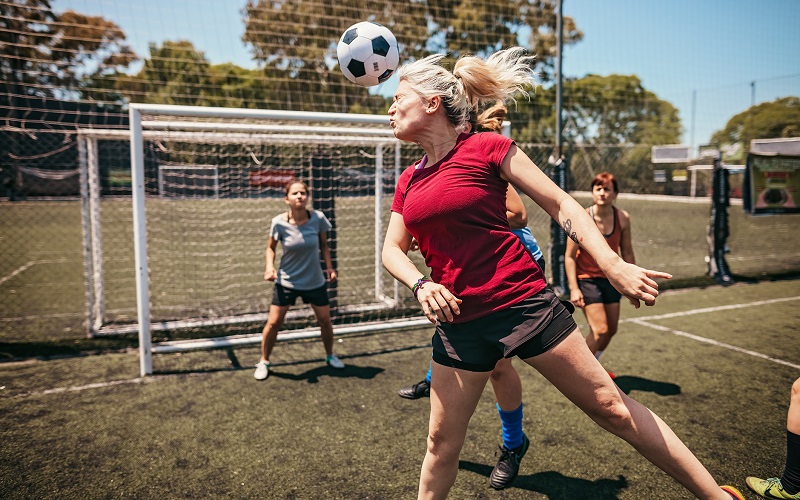
A concussion is type of brain injury usually caused by a blow to the head. Most of the time, the effects are minor and short term. But that’s not always the case. Immediate medical care may be necessary to prevent long-lasting neurological symptoms such as problems with concentration and memory.
Jenna Tosto Mancuso, PT, DPT, NCS, clinical specialist in neurologic physical therapy and physical therapist at the Abilities Research Center at The Mount Sinai Hospital, explains what a concussion does to the brain and what to do if you or someone you know may have sustained the injury.
What happens to the brain during a concussion?
Concussions are different than other head or brain injuries because there isn’t just one injured spot—the injury damages the whole brain. Concussions are often caused by a jolt to the head, which can cause the brain to bounce around in the skull, either back and forth or side to side. This rapid movement, and then the stopping, is what usually causes the injury. It also leads to changes in the chemical messengers—called neurotransmitters— which affects the communication pathways in the brain, leading to a variety of symptoms.
How might someone get a concussion?
Concussions usually result from rapid movement or changes in head and neck positioning. For instance, if you are playing a contact sport—like football—and get tackled, this can cause a concussion. It can also happen in soccer if you are hit in the head with the ball. But not all concussions happen while playing sports.
Does a concussion cause you to lose consciousness?
When we think about concussions, we often assume that the person loses consciousness, but that’s usually not the case. While you may lose consciousness briefly, it rarely lasts very long. Years ago, we might not have taken a blow to the head seriously if someone didn’t lose consciousness. We might have called it a stinger or a head hit. But researchers have realized that if you have sustained a head injury, it’s not a good idea to just walk it off and get back on the field.
What are the symptoms of a concussion?
Most symptoms of concussions appear pretty quickly. A headache, nausea, or blurry/ double vision are very common. Often, a concussed person may appear disoriented, confused, or not like themselves. They may lose their sense of balance or move oddly. They may seem unaware of their surroundings or lose track of time. If the concussion was sustained during a sporting event, a good way to find out is to ask, “What quarter are we in?” or “Which was the last team to make a play?”
What should I do if I think I have a concussion?
Immediately go to the emergency department. The medical teams there are trained and experienced in evaluating concussion symptoms and ruling out any other diagnoses. They will provide the best and most appropriate care. It’s also important to follow up with care after the head injury. For instance, if your child sustained a concussion, check in with their pediatrician to make sure there isn’t anything serious going on and to make sure your child recovers as quickly as possible.
What happens if you can’t get to the emergency department immediately?
Research shows that those who sustain a concussion do best if they get rehabilitation as soon as possible. If concussion symptoms aren’t addressed early, within two to three weeks, you may develop what we call post-concussive syndrome. These longer-term symptoms can become more serious concerns such as problems with memory, concentration, and impulse control.
What type of health care professionals can diagnose and treat a concussion?
Research and care of concussions has improved over the last 20 years. More health systems are developing comprehensive concussion care teams, which include specialists in rehabilitation medicine/physiatry, sports medicine, and neurology. Some teams also have physical therapists, occupational therapists, and speech and language pathologists and therapists. If you are experiencing changes in vision—such as double vision—the team might also include a neuro-ophthalmologist, which is a specialty that combines expertise with vision and neurology. The concussion care team might also refer you to a vision therapist, which is a subspecialty of occupational and physical therapy. If there might be an injury to the spine, the team might include an orthopedist. To best treat a concussion, we need a multi-disciplinary team to create a comprehensive plan of care for recovery.
Mount Sinai operates a post-concussion program through the Charles Lazarus Children’s Ability Center, located at Union Square, which has satellite programs throughout the city. We also operate a concussion clinic for adolescents and adults. For more information on that program, call 212-241-2221.
